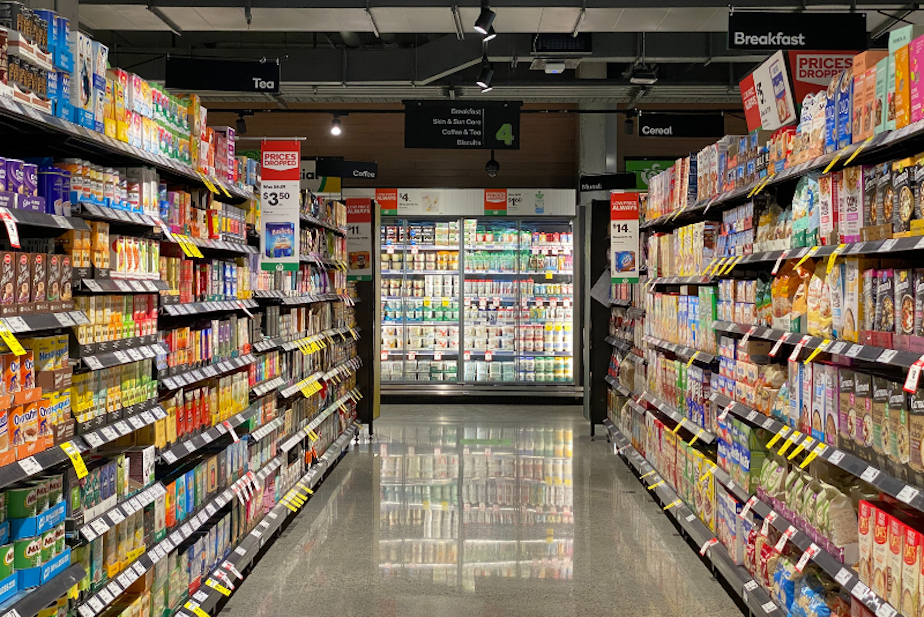What to expect when you're expecting a grocery merger

How much do you love your local grocery store, and what would you do if it went away?
In October of last year, executives at grocery store chains Kroger and Albertsons announced they had come to a merger agreement: Kroger was seeking to buy all of Albertsons' outstanding shares for an estimated $24.6 billion.
Though the deal is far from done, the announcement caused a bit of an uproar.
The companies have faced multiple lawsuits challenging the merger, as well as scrutiny from Congress.
There’s also been a lot of concern over possible store closures, which is something that has happened with big grocery store mergers in the past — including in the Pacific Northwest. Store closures impact local jobs and access to food.
KUOW reporter Ruby de Luna joined Soundside to talk about her reporting on this proposed merger.
One of the largest concerns residents have is the question of what will happen to their local stores. De Luna visited a neighborhood in Bellingham that is still dealing with the fallout from a grocery store closure eight years ago after Albertsons bought Safeway.
"Once a grocery store leaves or closes, it doesn't necessarily mean another one is going to come in," de Luna explained. The closest store to the residents of the Birchwood neighborhood is now nearly two miles away, and that can cause logistical difficulties for older folks or people living with disabilities.
Sponsored
The store that ended up occupying that space is not a grocery store, and, while it stocks some basics, it's not a location that residents can rely on for a broad spectrum of pantry and fresh food needs.
Employees at stores owned by Kroger and Albertsons have expressed concern as well. These are jobs that can provide steady employment and benefits for people without college degrees, or who need flexible working hours, and the potential of having their stores close has been worrying, employees told de Luna.
Naomi Oligario, who works at Safeway, said management hasn't been able to provide any updates yet and she and her co-workers are on pins and needles.
Ruby de Luna reports on food and how it intersects with health, communities, and culture, and you can listen to the entire conversation in the audio above.
After de Luna's series "State of the Cart" aired on KUOW, a Kroger spokesperson sent the following statement regarding the merger:
Sponsored
Kroger will not close any stores, distribution centers or manufacturing facilities as a result of this merger, including stores that may need to be divested to obtain regulatory approval. No exceptions, no excuses. We are in the process of working with regulators to develop a thoughtful plan for store divestitures to ensure that any divested stores are sold to qualified operators with appropriate management experience, a sound business plan, strong balance sheet and the financial stability to continue to succeed and serve their communities.






